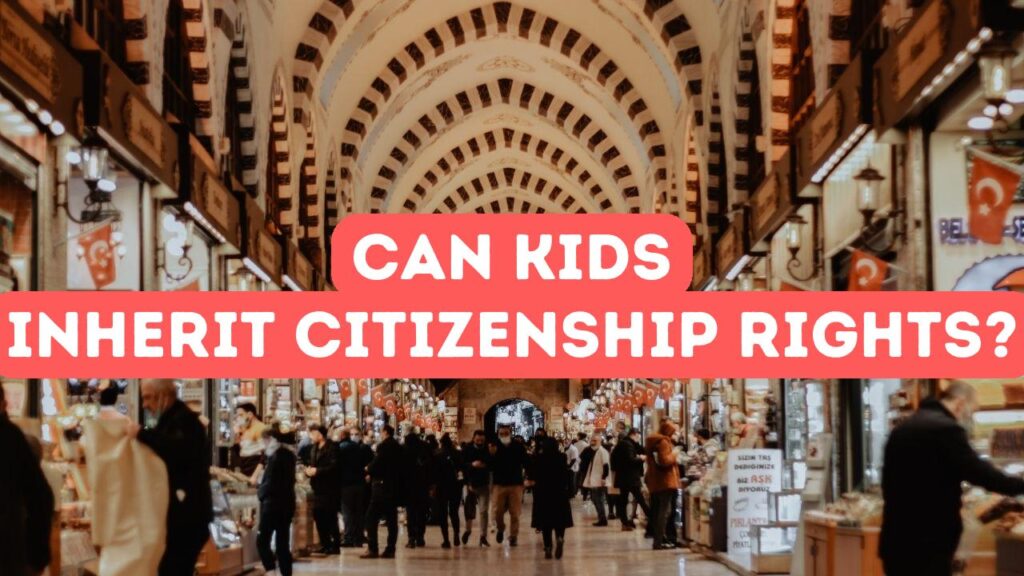Passing citizenship to children is a process many parents consider. Understanding US citizenship laws can be a puzzle, yet it’s crucial for ensuring your child’s legal status. Did you know that dual citizenship might be attainable for your little ones under certain conditions? US citizenship laws allow parents to pass citizenship to their offspring, but the path varies. Some obtain it automatically at birth, while others might explore citizenship by descent. Have you ever wondered how the rules change if you weren’t born on US soil? It depends on factors like the citizen parent’s residency history. Navigating these factors can feel like piecing together a complex jigsaw. Additionally, don’t overlook the specifics when aiming to pass citizenship. Whether it’s through birth, descent, or naturalization, the possibilities can shape your child’s future. So, how does citizenship for children work in your case? Let’s delve deeper to explore your options.
Understanding theEligibility Requirements for Citizenship Transfer
Understanding the eligibility requirements for citizenship transfer is pivotal. US citizenship laws have a set of conditions parents must fulfill to pass citizenship to their children. If your child is seeking citizenship by descent, your own citizenship status and residency play critical roles. For instance, if you hold US citizenship yet your child is born abroad, your time spent living within the US affects the process. Considering dual citizenship? It might be an option depending on the countries involved and their specific laws. Passing citizenship isn’t always automatic, so knowing the specific nuances can save you headaches. Does your family tree hold the key to dual citizenship? Examine it carefully. Each path to citizenship for children has unique criteria. Do your homework and consult expert advice to make an informed decision, ensuring your child benefits the most from your ample efforts.
Exploring the process of citizenship for children uncovers layers of legal intricacies. Primarily, US citizenship laws dictate multiple pathways. Thinking about passing citizenship by descent? You’ll need to dive into your own history. Your experience, time spent within the US, and your age when your child was born all factor in. Imagine you’re attaching pieces of a legal puzzle that ultimately benefit your child. If you’re considering dual citizenship, tread carefully; each country’s laws weave a different web. There’s a dance between ensuring citizenship and understanding each country’s demands. Could your child inherit citizenship without your direct intervention? Sometimes, the process unravels seamlessly, yet other times, it demands action and knowledge. It’s less about maneuvering blindfolded and more about finding the star map to your child’s rights and opportunities. How well do you know your own eligibility requirements? The stakes are high, so step wisely and stay informed.
Grappling with the eligibility criteria can seem daunting, yet knowing the ropes is invaluable. The crux of passing citizenship for children often hinges on your own citizenship framework. Long-term residency, marriage to a US citizen, or even military service might tip the scales. Beyond sheer eligibility, the intent to reside in the US upon obtaining citizenship plays a vital role. Are the scales tipping in favor of dual citizenship? Each nation sets its own stage with unique legal drama. Navigating these pathways isn’t merely about meeting US citizenship laws but also respecting international treaties and regulations. Reflect on how your lineage and living history resonate with current laws. Could your time overseas impact the potential to pass citizenship to your child? Staying vigilant and consulting legal professionals can transform this maze into a well-lit path, ensuring citizenship for children isn’t left to chance.
Exploring the Different Paths to Citizenship for Offspring
Being a parent brings many decisions, including the paths to citizenship for children. US citizenship laws offer various routes; understanding them can ease the journey. The most straightforward path is passing citizenship at birth if born in the US. But what if you’re abroad? Parents can still pass citizenship through specific criteria. Checking the parent’s residency history is vital for those seeking citizenship by descent. Dual citizenship is another intriguing twist, allowing your child to embrace two cultures and opportunities simultaneously. Each option has its intricacies, like an intricate tapestry of regulations. Mastering these elements ensures you pass citizenship effectively and legally. It’s a matter of equipping your offspring with all the rights and privileges citizenship affords. Remember, knowledge is power when navigating these choices. Explore each option well, as the decisions you make now can have lasting impacts on your child’s future opportunities.
Embarking on the journey to citizenship for children can feel like adventuring into uncharted waters. If you wish to pass citizenship beyond US borders, citizenship by descent is a pivotal concept. This requires an understanding of US citizenship laws and your residency past. For instance, did you meet the right residence duration in the US before your child’s birth? This factor can open doors to citizenship for your offspring. Alternatively, dual citizenship offers a rich blend of cultural identities. However, tackling two sets of rules could be like juggling with fire behind your back. Each country has its own dance when it comes to acknowledging dual citizenship. Thus, know the rules before taking the leap. Equally important, naturalization could be your beacon in the storm when other paths are rocky. Whether by descent or another method, these choices mold your child’s legal foundation. Make sure to seize the right opportunity.
Amidst the various paths, citizenship for children born outside the US can still be attained. Did you know citizenship by descent could be your treasure map? It’s all about aligning with US citizenship laws and verifying the parent’s residency criteria. Keep in mind, passing citizenship isn’t always straightforward. Certain factors like residency duration play the role of secret keys unlocking dual citizenship possibilities. Imagine your child living in tune with two nations, enjoying double the opportunities. Yet, each country’s laws on dual citizenship differ. Skating through these with ease demands thorough understanding and preparation. Additionally, when neither birth nor descent fits, naturalization stands as a viable route. It’s akin to finding a new doorway when older paths seem blocked. Knowing your options and the US citizenship laws helps you pass citizenship securely, guiding your child towards a horizon of possibilities. Equip yourself with knowledge, for that’s your true compass.
Legal Implications of U.S. Citizenship Passing to Next Generations
Navigating the legal implications of passing citizenship for children is key for parents. US citizenship laws classify how and when you can pass citizenship, and they vary based on circumstances. For some, it’s straightforward, with citizenship secured at birth. However, if you’re eyeing dual citizenship or citizenship by descent, the situation may require deeper scrutiny. Critical to this is understanding the residency requirements tied to the citizen parent. Without meeting these conditions, the path might twist and turn, posing challenges. Can you imagine the importance of getting this right? It’s not just about a passport; it’s about shaping your child’s identity and opportunities. Thus, knowing the ins-and-outs of these laws is essential, offering a guiding light through the maze of legalities. So, how might these implications affect your family? It’s worth uncovering.
Understanding US citizenship laws is like learning a new dance; it requires practice and patience. When considering citizenship for children, parents often face a labyrinth of rules and regulations. Dual citizenship sometimes creeps into the mix, with its own set of intricacies. Some children may get the privilege of automatic citizenship at birth, but for others, exploring citizenship by descent becomes essential. Here, US citizenship laws dig a little deeper, demanding a parent’s detailed residency history. How important is the parent’s past in this equation? It’s crucial. Without clear comprehension of these requirements, a parent’s well-meaning efforts might become sidetracked, leading to missed opportunities. The quest to pass citizenship isn’t just about legalities; it’s about investing in a child’s future. Arming oneself with knowledge can act as a compass through this tangled web, ensuring all legal implications are tackled head-on, paving a smoother path for generations to come.
Diving into the legal implications of U.S. citizenship passing to the next generations is like delving into a mystery novel—every chapter unveils a new twist. Understanding US citizenship laws is imperative to avoid potential legal snags. For instance, dual citizenship offers an enticing prospect, but it comes with its own rulebook. The thread of citizenship by descent requires a clear understanding, especially of the citizen parent’s life tapestry. How well does your timeline match with the law’s requirements? Each tick of this clock can impact your child’s legal standing. Missed steps can lead to unforeseen hurdles. Embrace this journey as an investment in a sturdy foundation for your child’s future. Reckoning with the intricate dance of US citizenship laws means grasping the nuances of passing citizenship fairly and thoroughly. With each decision, remember that you are shaping tomorrow’s possibilities, stitching a rich fabric of opportunity and identity for future generations.







